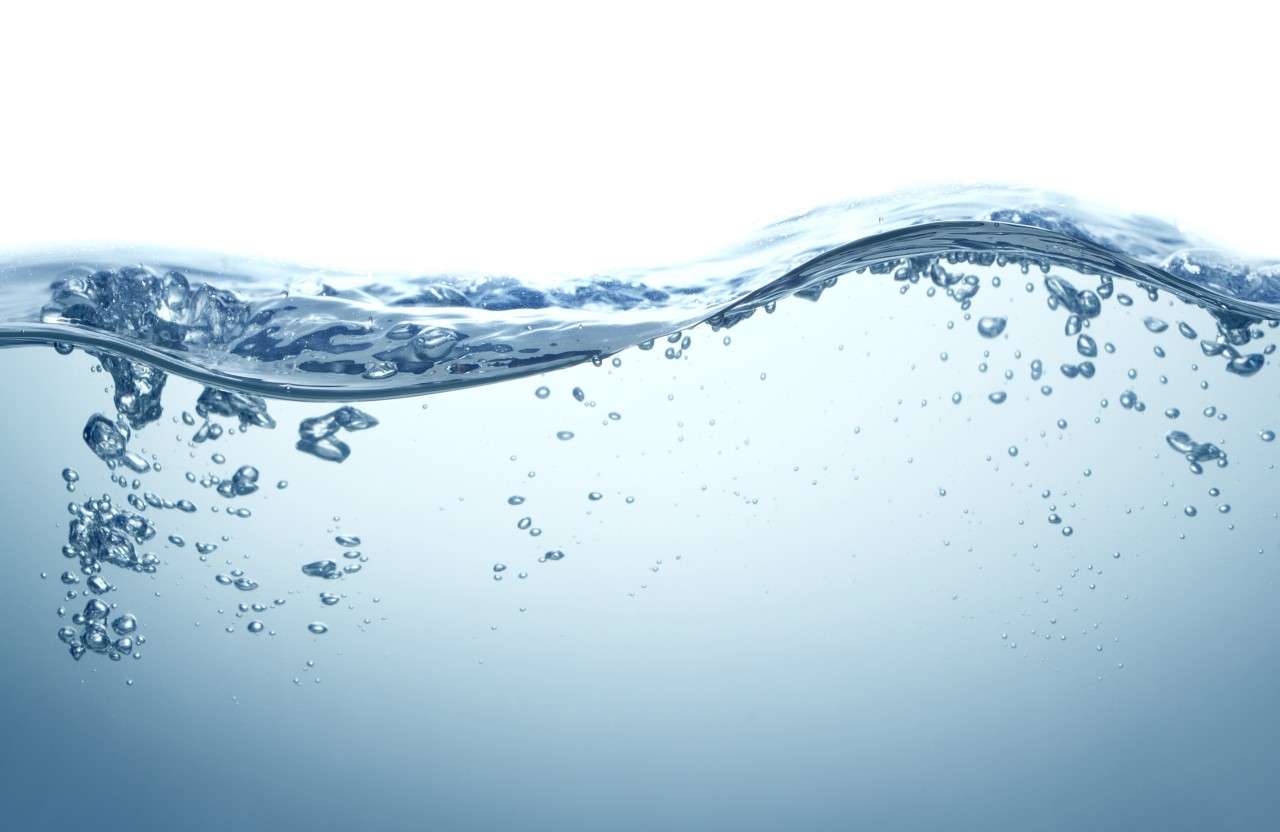- Water Softening & Filtration
- Education
- Learn About Water Softeners
The Hard Truths About Water
What is Hard Water?
Water is the world's most sensational solvent. To that point, its ability to dissolve rock and sediment has created some of the world's most stunning sights, like the Grand Canyon. Not a bad body of work. However, when rock and limestone dissolve into freshwater, it results in high concentrations of calcium and magnesium in the water, or “hard water.” As hard water evaporates, the concentration of minerals grows and results in water that forms scale buildup (a.k.a. saturation.)
So the question at hand is, “How much mineral content in your water is officially ‘too much’?” After all, low amounts of magnesium and calcium can actually supplement a healthy diet. But once your water is leaving scale deposits in its wake, chances are your water is too hard, and could benefit from being treated by a water softening solution.

Disadvantages of Hard Water
Hard water can hit your home hard.
Your pipes can become encrusted and blocked due to calcification. You could potentially experience a clogged showerhead. Or lukewarm water. Or slow drainage. Or poor water pressure. Then there’s the matter of how scale build up can harm appliances. Scale buildup can clog your dishwasher, water heater, fridge, etc. or cause damage that could result in costly repairs.
Using hard water can also cause dingy, faded laundry and spots on your dishes right out of the dishwasher. Showering in it can make your skin itchy and your hair flaky. Residue can form in your toilets sinks, and tubs. Detergents could be disrupted by soap scum, and…well…you get the idea. Soft water the better way to go. By far.
So let’s talk water softeners, shall we?
First Things First: What Is a Water Softener?
A water softener is a work of water wonder. In general, its duty is to limit scale buildup and reduce the overall mineral content in your home’s water by exchanging or negating ions of common minerals. In doing so, the best water softeners (humility aside, those would be ours) allow your home to have clearer, more refreshing, and high quality water throughout your home.
Most water softeners can be separated into two types: salt-based water softeners and salt-free water softener alternatives (also called conditioners, but more on that later). Before we examine the benefits, let’s see how these systems work:
Salt-Based Water Softeners
Salt-based water softeners swap calcium and magnesium ions from the affected hard water by replacing these ions with sodium ions from the salt in the system. Within the resin tank of salt-based water softeners, an ion exchange occurs. This exchange reduces the mineral count while increasing the overall salt content of the water.
A byproduct of the ion-exchange process causes the hardness minerals to collect in the conditioning tank of the unit, which requires the system to regularly backwash and flush the hardness minerals down the wastewater drain. The salt within the system must be replaced at regular intervals.
Benefits of Salt-Based Water Softeners
The reasons some homeowners choose a salt-based water softener are pretty sweet:
- They effectively reduce hardness mineral ions from your home's water.
- They save you money on appliance repair, plumbing repair, and detergent that is rendered less effective by hard water.
It is worth noting that our Water Softeners come standard with high capacity resin tanks and an easy-to-program electronic metered head. Furthermore, they only backwash when needed, so they use as little water as possible in the cleaning process.
Salt-Free Water Softener Alternatives
As we touched on earlier, salt-free water softener alternatives are also called conditioners. This is because they recondition the water, instead of removing mineral ions. By forgoing the ion exchange process, salt-free water softener alternatives generate zero water waste and require less maintenance than salt-based counterparts.
Pentair Water Solutions offers Water Softener Alternatives that treat water by preventing scale buildup while leaving beneficial minerals in your water. To get technical, the media present in our salt-free solutions has calcium carbonate crystal structures on its surface that will attract excess dissolved hardness and remove it from solution by integrating it into the crystal structures on the media filter. The crystals on the media surface grow larger. The movement and friction in the water will cause fragments of these newly grown crystal structures to be fragmented from the media and released into the passing water.
Free-flowing calcium carbonate crystals then continue to travel through a plumbing system as suspended particles and buffer the effects of any changes in the scale potential of the water downstream.
Benefits of Salt-Free Water Conditioners
Salt-free water softeners employ a complicated scientific process to work properly. But they have bigtime benefits – all of which are super easy to understand.
- They have more substantial lifetime savings compared to salt-based softeners by removing the need for refilling salt, making them a more affordable option.
- Beneficial minerals are left intact in your drinking water, while the negative effects of hard water like scale buildup are reduced.
Not to toot our own hard water softening horn, but our Pentair Water Solutions systems are the only third-party tested, DW-9191 certified water softener alternative with 99.6% prevention of scale buildup. By naturally softening water without the use of salt, the Pentair Water Solution system also generates zero wastewater. And our system does all of those good things without using electricity in ways that require minimal maintenance.
Best Types of Water Softeners and Conditioners
We offer multiple types and sizes of water softeners and conditioners. Let’s explore the options:
- The Pelican Salt-Free Water Softener Alternative conditions your home water, and it’s available in multiple sizes depending on the number of bathrooms you have in your home. This salt-free water softener alternative is only intended to treat water hardness and does not filter out other contaminants. Certified at 99.6% for scale prevention, the Pentair Water Solutions water softener alternative requires minimal maintenance.
- Water Softeners - As water passes through the mineral tank, the positively charged calcium and magnesium ions are lost to negatively-charged plastic beads. The brine tank holds a solution of water and salt that flushes the mineral tank and replaces the calcium and magnesium ions with sodium. Recharging cycles are controlled by the meter on the top of the tank (normally once every 7 days). All systems come standard with high capacity resin tanks.
- Water Filter and Pelican Water Softener Alternative Combo System equip your home with hard water conditioning capabilities while also effectively reducing bacteria and common contaminants with carbon and sediment filters. Free shipping comes standard on our most comprehensive family of products that deliver trusted, proven drinking water.
Consider your options and consult with a Pentair Water Solutions expert for assistance in deciding what model would best serve your home.
What Size Water Softener Do I Need?
All of our models are available in different sizes that can handle certain capacities of minerals per day. What size water softener do you need? Truth is, the size of the unit is not as important as the unit’s ability to remove the minerals causing water hardness. So when people talk about water softener size, this is what they’re actually concerned with, rather than the cubic footage of the system.
Bottom line: you don’t want to purchase a water softener that is insufficient for your specific water hardness. Just as you don’t want to pay for a softener with unnecessary capacity.
Calculating Your Usage
Our softener systems are sold in multiple sizes, and these sizes are named with approximate calculations based on the amount of water usage in your home. For example, smaller units are listed as “1-3 Bathrooms,” while larger units are termed “4-6 Bathrooms.” However, don’t hesitate to contact a Pentair Water Solutions expert and calculate the amount of minerals you need to be treated each day to make the best decision.
How to Install a Water Softener
No matter what water softener you purchase, you must turn off the water main and drain the remaining water in your system before beginning installation to avoid leaks. For more comprehensive systems, you may have to cut your pipes where you install the system, most likely in your basement.
When you purchase a Pentair Water Solutions Water Softener Alternative, you will first need to assemble and install the sediment filter. Then, you will install the softener or conditioner tank, and, finally, use the bypass valve to soak the media before you begin using the system. For more compact systems, you’ll simply insert your plumbing into the inlet and outlet, and then insert the cartridges to their corresponding chambers once you mount the bracket.
Each softening or conditioning system comes with a detailed owner’s manual with step-by-step installation instructions. If you are not comfortable with plumbing and other fixtures, you can hire a Pentair Water Solutions professional to install your system in just a couple of hours. Some homeowners may feel more comfortable with a professional installing their system directly, whether for convenience or peace of mind. Call Pentair Water Solutions to consult an expert.
Water Softener System Maintenance
The amount of maintenance required for a water softener varies depending on your decision to purchase a salt-based softener or a salt-free water softener alternative. Salt-based water softeners utilize electricity, generate brine that must be discharged, and require monthly maintenance to replenish the salt ions.
Water softener alternatives, on the other hand, are mostly maintenance-free. No wastewater accumulates or discharges into the water supply. Due to the way a water softener alternative functions, you won’t need to perform regular maintenance on the unit itself.
Depending on which water softener or conditioner you choose, you’ll need to replace only certain cartridges and filters. If you go with a Pelican Salt-Free Water Softener Alternative, you should replace the sediment pre-filter every six to nine months.
Other than occasional filter replacement, your unit will need no ongoing maintenance.
So there you have it. The cold, hard facts about hard water. And why you want to soften it properly. Any further questions? Ready to enjoy all the endless benefits that softer, better water brings? Insist on Pentair Water Solutions – and contact one of our experts today!

